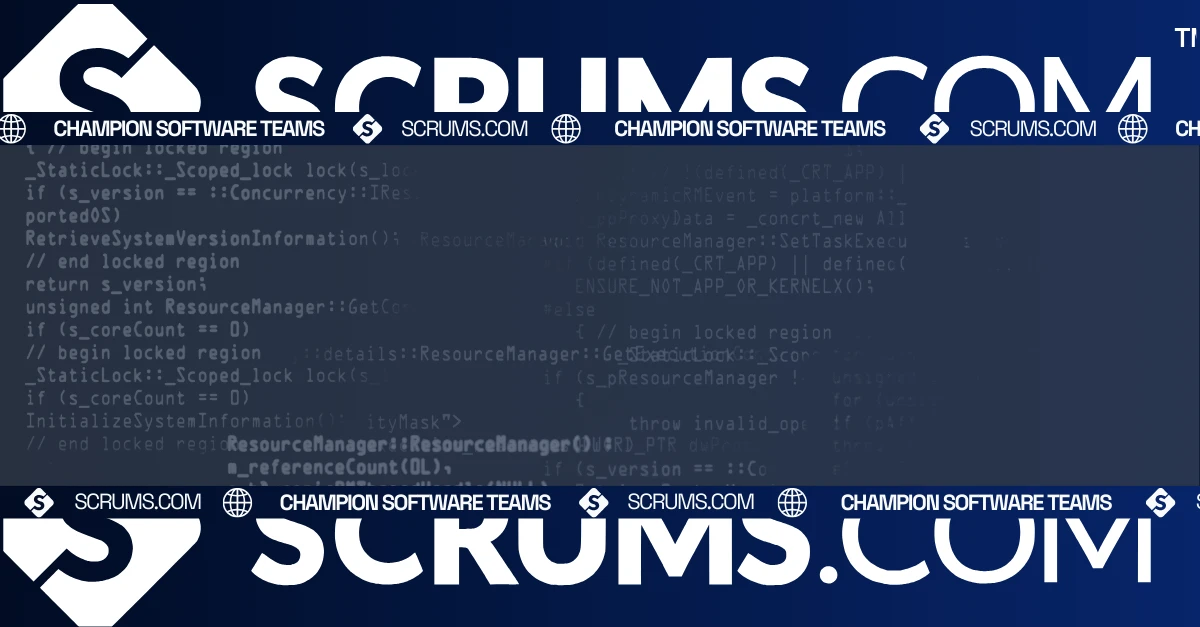Docker: Fast Container Application Development
Introduction to Docker
Docker is a platform designed to simplify the process of developing, shipping, and running applications using containers. Containers allow developers to package applications with all necessary dependencies, ensuring consistency across multiple environments. Docker has become a crucial tool in modern software development, providing businesses with a reliable way to manage applications in production while reducing deployment time and infrastructure costs. It is highly valuable for business owners, CTOs, and developers who aim to improve operational efficiency, scalability, and innovation.
What is Docker?
Docker, launched in 2013 by Docker, Inc., is an open-source platform that enables developers to automate the deployment of applications inside lightweight, portable containers. Containers are standardized units of software that contain everything needed to run an application, including the code, runtime, libraries, and settings. Docker solves the problem of environment consistency by ensuring that an application runs the same way regardless of where it is deployed.
Docker is highly effective for projects that require rapid development cycles, scalable deployment, and minimal overhead. It is particularly beneficial in environments where applications need to be run consistently across multiple systems, such as development, testing, and production environments, or in cloud-native microservice architectures.
Core Features and Functionalities
Docker's features are designed to address the needs of both business and development teams by providing a robust and flexible containerization platform.
Containerization: Docker enables the packaging of applications and their dependencies into standardized units called containers, ensuring consistent behavior across different environments.
Docker Hub: A centralized repository for finding and sharing container images, Docker Hub provides a vast library of pre-built images, including official images from software vendors, making it easy to get started with Docker.
Docker Compose: A tool for defining and running multi-container Docker applications, Docker Compose allows developers to use a YAML file to configure application services and manage them with a single command.
Docker Swarm and Kubernetes Integration: Docker integrates with orchestration tools like Docker Swarm and Kubernetes, enabling businesses to manage, scale, and deploy containers efficiently.
Security and Isolation: Docker provides robust security by isolating applications in containers, reducing the attack surface, and minimizing the risk of conflicts between applications.
Multi-Platform Support: Docker runs on Linux, Windows, and macOS, providing flexibility for developers working in diverse environments.
These features deliver business value by increasing development efficiency, reducing infrastructure costs, and providing a consistent environment for application deployment.
Benefits for Businesses and Development Teams
For Businesses:
- Faster Time to Market: Docker’s containerization allows teams to build, test, and deploy applications quickly and consistently, reducing time to market.
- Cost Savings: Docker’s lightweight containers use fewer resources than traditional virtual machines, lowering infrastructure and operational costs.
- Scalability and Flexibility: Easily scale applications horizontally by deploying additional containers as needed, ensuring high availability and fault tolerance.
- Consistent Environments: Containers ensure that applications run consistently across different environments, reducing the “it works on my machine” problem.
- Improved DevOps Efficiency: Docker integrates seamlessly with CI/CD pipelines and DevOps workflows, enabling faster releases and automated testing.
For Developers:
- Simplified Development and Deployment: Docker allows developers to package their applications with all dependencies, ensuring smooth deployments and consistent environments.
- Support for Microservices Architecture: Docker makes it easy to build, deploy, and scale microservices, supporting modern development practices.
- Integration with Popular DevOps Tools: Works seamlessly with Jenkins, Kubernetes, GitHub Actions, and other CI/CD tools, enhancing development workflows.
- Portability: Docker containers can run on any system that supports Docker, including Linux, Windows, and Mac, offering flexibility for developers.
- Extensive Ecosystem: Docker Hub provides a wide range of pre-built images, reducing the need to build everything from scratch and speeding up development.
Use Cases and Applications
Docker's versatility and powerful containerization capabilities make it suitable for various use cases across different industries:
DevOps and CI/CD Pipelines: Docker is widely used to build, test, and deploy applications as part of automated CI/CD pipelines, ensuring consistency and reducing errors.
Microservices Deployment: Enables the deployment of microservices-based applications where each microservice runs in its container, promoting scalability and resilience.
Cloud Infrastructure Management: Docker is ideal for managing cloud environments, allowing for portable and scalable deployments on AWS, Azure, and Google Cloud.
Industry-Specific Applications:
- Fintech: Supports secure and scalable environments for developing and deploying financial applications with rapid release cycles.
- Healthcare: Facilitates the deployment of compliant applications in a highly regulated industry with a need for data privacy and security.
- E-commerce: Enables deploying scalable and high-performance web applications, ensuring optimal user experiences even under high load.
Integration Capabilities and Ecosystem
Docker offers extensive integration capabilities with various development tools, platforms, and ecosystems.
- Popular Platforms: Seamlessly integrates with cloud platforms like AWS, Microsoft Azure, and Google Cloud for enhanced container management and orchestration.
- Development Tools: Integrates with popular CI/CD tools like Jenkins, GitLab, GitHub Actions, and Kubernetes for streamlined DevOps workflows.
- API Availability: Provides a comprehensive REST API for automating Docker’s capabilities and integrating with custom applications.
- Extensions and Plugins: Docker has a rich ecosystem of plugins and extensions for networking, storage, monitoring, and security that can be easily integrated to enhance functionality.
Comparison with Alternatives
Docker is often compared with other containerization and virtualization tools like Kubernetes, Podman, and VirtualBox. Here’s a brief comparison:
- Pros: Wide community support, extensive documentation, robust ecosystem, and seamless integration with orchestration tools like Kubernetes.
- Cons: Can have a learning curve for beginners, and some advanced features require a Docker subscription.
- Cost Considerations: Docker offers a free version and paid tiers (Docker Pro, Docker Team, Docker Business) with additional features and support.
- When to Choose Docker: Opt for Docker when you need a standardized, efficient, and scalable solution for application deployment and environment management.
Getting Started with Docker
Here’s a step-by-step guide for business decision-makers and developers to get started with Docker:
- Install Docker: Download and install Docker Desktop on your preferred operating system (Linux, Windows, macOS).
- Set Up a Docker Environment: Use Docker CLI or Docker Desktop to set up containers, create Dockerfiles, and manage images.
- Pull Images from Docker Hub: Find and pull pre-built images from Docker Hub or create your own custom images using Dockerfiles.
- Define Multi-Container Applications with Docker Compose: Create a docker-compose.yml file to define and run multi-container applications.
- Integrate Docker with CI/CD Pipelines: Use Docker with Jenkins, GitHub Actions, or GitLab CI to automate the build, test, and deployment processes.
- Monitor and Scale Applications: Use Docker's built-in monitoring tools or integrate with third-party monitoring solutions to manage application performance.
Refer to Docker Documentation for tutorials, webinars, and comprehensive guides.
Related Tools and Resources
- Docker vs. Podman: Understand the key differences and similarities between Docker and Podman.
- Docker with Kubernetes: Learn how Docker integrates with Kubernetes for container orchestration.
- Docker Hub: Explore Docker Hub for pre-built container images and community support.
- Docker Documentation: Docker documentation for comprehensive guides and tutorials.
FAQs
We've got you covered, these are some common questions we receive. Not seeing the answer to something?...
Docker simplifies development, accelerates deployment, and reduces costs, making it ideal for modern software development companies.
Docker provides isolation through namespaces and control groups and offers built-in image scanning for vulnerabilities.
Docker can run on Linux, Windows, and Mac operating systems, offering flexibility and portability across environments.
Docker containers can be orchestrated and managed using Kubernetes, providing robust container orchestration and scaling capabilities.
Yes, Docker can be used for multi-cloud deployments across AWS, Azure, and Google Cloud, offering flexibility and scalability.
Docker integrates with monitoring tools like Prometheus, Grafana, and Datadog to provide insights into container performance and health.
Explore Software Development Blogs
The most recent trends and insights to expand your software development knowledge.







